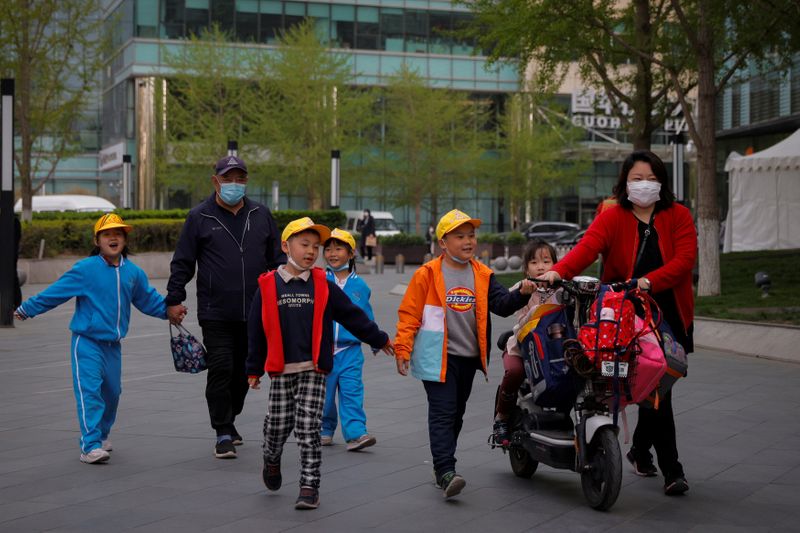HONG KONG (Reuters) -China's private education firms are bracing for a "material" hit to their operations after Beijing announced new rules barring for-profit tutoring in core school subjects to ease financial pressures on families.
News of the rule changes on Friday sent shockwaves through China's $120 billion private tutoring sector and triggered a massive sell-off in the shares of companies including U.S.-listed TAL Education Group (NYSE:TAL) and Gaotu Techedu.
Under the new rules, all institutions offering tutoring on the school curriculum will be registered as non-profit organisations, and no new licences will be granted, according to an official document.
TAL said in its statement on Sunday that it expects the new rules to have "material adverse impact on its after-school tutoring services ... which in turn may adversely affect" its operations and prospects. It did not elaborate.
TAL's New York-listed shares plunged 71% on Friday.
New Oriental Education & Technology Group Inc, Koolearn Technology Holding Ltd, Scholar Education Group, and China Beststudy Education Group made similar statements on Monday.
China's education industry sub-index dropped 8% in Monday morning trade, while Hong Kong-listed shares of New Oriental, Koolearn, Scholar Education and China Beststudy tumbled between 30% and 40%.
China's for-profit education sector has been under scrutiny as part of Beijing's push to ease pressure on school children and reduce a cost burden on parents that has contributed to a drop in birth rates.
"The company is considering appropriate compliance measures to be taken, and expects such measures to have material adverse impact on its afterschool tutoring services...," New Oriental Education said in a statement.
Online education services provider Koolearn, which expects its after-school tutoring services to be affected, said it will comply with the relevant rules when providing educational services.
Scholar Education said authorities had yet to provide details around the implementation of the rules and there were uncertainties as to when and how such rules will become specifically applicable to the group.
"I personally have always stayed away from the education sector as regulations have been changing erratically for many years," said Dave Wang, portfolio manager at Nuvest Capital in Singapore.
"But the broader view is that the Chinese government has always been more particular on sectors that have widespread social implications. The increasing difficulty for investors and companies is that the boundary seems to be extending ... (and) no one knows what might be next."

In May, China said it would allow couples to have up to three children, from two previously.
"The company is in communication with the regulatory authority and will make appropriate adjustment of its business model whenever needed to ensure the compliance with the new policies under the opinions," China Beststudy Education said.